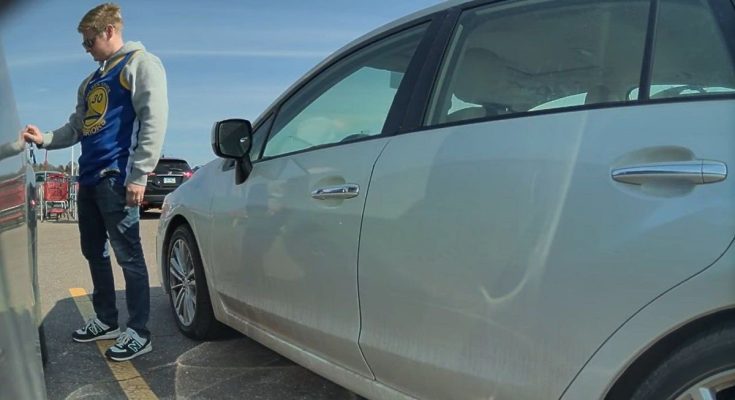Hennepin County Attorney Mary Moriarty spoke about her decision not to file felony charges against a state employee who caused thousands of dollars of damage to Tesla vehicles. FOX 9’s Mike Manzoni has the latest.
MINNEAPOLIS (FOX 9) – Hennepin County Attorney Mary Moriarty says politics wasn’t a factor when prosecutors made a decision not to bring criminal charges against a man accused of vandalizing six Teslas.
Instead, Moriarty says it was the best decision for public safety.
Tesla vandal won’t be criminally charged
The backstory:
This week, the Hennepin County Attorney’s Office told FOX 9 that they’d seek diversion instead of criminal charges for the man accused of causing $20,000 in damage.
In an initial statement, the office said they were prioritizing restitution for the victims in making the decision.
“Our main priorities are to secure restitution for the victims and hold Mr. Adams accountable. As a result, we will file for pre-charge diversion to best facilitate both of those goals,” HCAO spokesperson Daniel Borgertpoepping wrote in a statement on Monday. “This is an approach taken in many property crime cases and helps to ensure the individual keeps their job and can pay restitution, as well as reducing the likelihood of repeat offenses. Criminal prosecution remains a possibility should unlawful behavior continue.”
FOX 9 also learned the suspect, 33-year-old Dylan Adams, is an employee of the State of Minnesota, working in the Department of Human Services.
Tesla vandalism: County attorney addresses charging decision
Hennepin County Attorney Mary Moriarty on Wednesday was asked why her office declined to charge a man accused of vandalizing Teslas in Minneapolis.
The other side:
The Hennepin County Attorney’s Office has faced stiff criticism from both the Minneapolis police chief and even a fellow prosecutor for the decision not to charge the suspect.
In a statement, Chief Brian O’Hara wrote: “The Minneapolis Police Department did its job. It identified and investigated a crime trend, identified, and arrested a suspect, and presented a case file to the Hennepin County Attorney’s Office for consideration of charges. This case impacted at least six different victims and totaled over $20,000 in damages. Any frustration related to the charging decision of the Hennepin County Attorney should be directed solely at her office. Our investigators are always frustrated when the cases they poured their hearts into are declined. In my experience, the victims in these cases often feel the same.”
State Rep. Kristin Robbins (R-Maple Grove) released a statement saying, “This is just another example where she has declined to prosecute. She’s taken an oath to uphold the Constitution and the rule of law, and I’m very concerned that, repeatedly, she’s not taking her oath seriously.”
Mary Moriarty explains decision
What they’re saying:
Speaking with reporters on Wednesday, Moriarty said the decision was made in the “best interest of public safety.” She argues that, for someone with no record, a felony conviction can send them down the long road.
“If they go through the traditional system, and they have a felony conviction on their record, they are much more likely to come back and commit a new crime,” explained Moriarty. “That is because a felony conviction destabilizes their lives, they may lose their job, lose their housing, and it can just lead to future criminal activity. What does work, and the recidivism rates are much, much lower, is diversion. And that’s been proven over and over here and throughout the country.”
Moriarty added that diversion is the tactic they use for most property damage cases when the suspect doesn’t have a criminal record.
“This person did not have a record,” Moriarty explained. “For most property offenders, without a record, they go to diversion… I had a conversation with somebody who wanted to know why we made this decision. And I said, this is how we handle first time, low-level property cases. Should we have treated this gentleman differently because it’s become a political issue? We seek – and I’ve said this over and over in my term – not to make decisions that are not about politics. So we made this decision because it is in the best interest of public safety.”
Moriarty also made it clear the political aspects of the case weren’t factored in by prosecutors.
“We try to make decisions without really looking at the political consequences,” said Moriarty. “Can we always predict how a story will be portrayed in the media or what other people are going to say? Should we make decisions based on what we might think will happen?”



